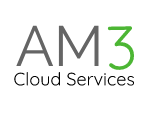Voice Over IP Terms and Definitions
Voice Over IP (VoIP)
Auto Attendant
Automatic Attendant or Auto Attendant allows someone to dial into a main number then dial a feature code or an extension. An auto attendant is integrated with the PBX ACD. It can be used in combination with Direct Inward Dial to allow, for example, providing a directory of users so that a caller can look up someone by name and be transferred to their number.
Automatic attendants are often built in programs within a PBX, but can also be a standalone IVR program that interacts with the caller to route calls to the desired extension.
It can be modified through Freepbx ==> general settings ==>Operator extension,
and it’s useful with IVR for incoming calls, like ” press 0 to reach our operator “.
Follow Me
Follow me is call forwarding but from the destination extension.
E.g. your extension is 100, you go to work at a colleagues desk and remember that you forgot to forward your phone, you can pick up the extension that you are presently at, dial the feature code for follow me, your extension and the password for your extension and the calls to extension 100 will now be delivered to your colleagues extension.
Hunt Group
Extension
Customized dial plans which allows business to more easily control call flows by establishing simplified numbers.
Do Not Disturb
PBX Do Not Disturb or DND functionality is the ability of a phone or client to ignore any incoming calls. This can be implemented in several ways.
Ringer Off or Ringer Mute. The call rings as normal but does not alert the user. The call is then handled by the method programmed in the no-answer event, such as sending the call to the voice mail system after 20 seconds of ringing.
Busy Mode. The phone is taken off-hook or sends a signal to the PBX stating it is busy, and not available for calls. The call is then handled by the method programmed in the busy event, such as forwarding to another free extension or to voice mail.
Mixed Mode. Some phone and PBX systems inplement a priority calling functionality. DND is activated on the phone. When a normal call comes in, it is handled by the Ringer Off or Busy Mode rules as stated above. Other users have the ability to mark a call as Priority, bypassing the DND mode and forcing the extension to ring.
